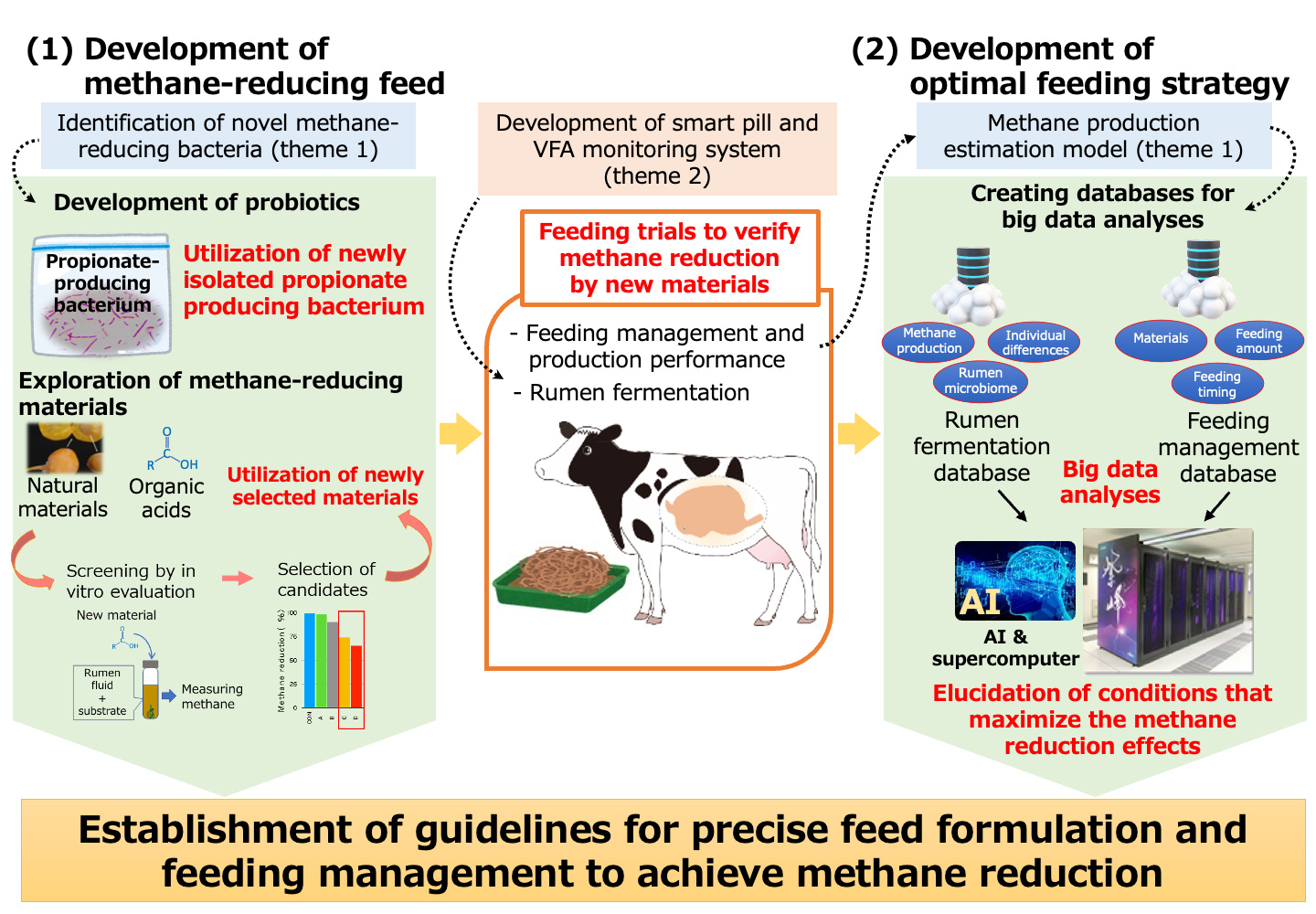Development of optimal feeding strategy for methane reduction by using rumen modifiers
Background
In order to achieve both methane reduction from cattle and improvement of productivity, it is necessary to lead rumen fermentation to increase propionate production and decrease methane production. This research project aims to reduce methane from cattle by 80% in the future, but in order to achieve this, it is essential to develop a feeding strategy to maximize the effect in addition to feed development. By combining a new methane-reducing feed with a smart pill that monitors rumen fermentation in real time, the methane reduction from the rumen can be expected to be maximized.
Research content
(1) Development of methane-reducing feed
Natural materials and organic acids that could lead to methane reduction and propionate enhancement will be evaluated by in vitro trials, and materials that exhibit prominent effects will be selected. Then, the candidate materials are used for feeding trials to verify the effects of methane reduction and propionate enhancement.
(2) Development of optimal feeding strategy
The effect of newly developed feed on the rumen environment and milk yield will be monitored under different feeding conditions (feeding amount, timing, etc.). The data such as the feed materials and its feeding amount, feeding timing, extent of methane reduction, rumen microbiota, or individual differences are incorporated into the databases followed by big data analyses using a supercomputer. This will clarify the conditions that maximize the methane reduction effect and will be useful for precise feed formulation and feeding management.
Subprojects
Subproject 1: Understanding of rumen microbiome and metabolic hydrogen flow
Subproject 2: Development of “smart pill” for real-time monitoring of rumen fermentation
Subproject 3: Establishment of optimal feeding system for reducing rumen methane
